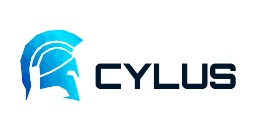Cylus Raises $4.7M to Help Protect Rail Industry Against Cyberattacks
(SecurityWeek) – Cylus, an Israel-based startup that specializes in cybersecurity solutions for the rail industry, emerged from stealth mode on Thursday with $4.7 million in seed funding.
Researchers have warned on several occasions in the past years that modern railway systems are vulnerable to cyberattacks, and the rail industry has been targeted by both cybercriminals and state-sponsored cyberspies.
Cylus aims to address the challenges of securing railway systems by developing a solution that is specifically designed for this sector. The product relies on a set of non-intrusive sensors that provide deep visibility into operational networks and help detect malicious activities. Customers are provided an automated assessment and instructions on how to respond when a threat is detected.

The sensors are deployed in control centers, train management systems, interlocking systems, rolling stock, and trackside components. Information collected by the sensors is fed to an on-premises server that aggregates data and generates alerts based on rules derived from machine learning algorithms and research conducted by Cylus.
A centralized dashboard provides a view of all components, and alerts users when suspicious activities are detected, including failed authentication attempts, abnormal signaling communications, and unauthorized communications between components.
In addition to step-by-step instructions on how to respond to a specific threat, Cylus’ product offers forensic analysis capabilities designed to allow railroad companies to investigate incidents.
Cylus has obtained $4.7 million in seed funding from Zohar Zisapel, Magma Venture Partners, Vertex Ventures, and the SBI Group.
“Current approaches to cybersecurity do not fit the architecture of railway networks today,” said Cylus CEO Amir Levintal. “Our team of world-class cyber specialists together with rail industry experts have tailored a solution to the industry’s unique requirements. Our solution enables rail companies to detect cyber-attacks in their operational network, including their signaling systems and rolling stocks, and block attackers before they can cause any damage. The automotive industry has woken up to the critical need for cyber protection– it’s time the railway industry got on board as well.”
Cylus told SecurityWeek that it’s currently in negotiations with several large national railways to test its product. Pricing is scalable and depends on the specific needs of each customer.
“Railway companies cannot compromise on passenger safety, and one of the pillars of passenger safety is cybersecurity,” said Boaz Zafrir, President of Cylus and former CEO of Israel Railways. “Railway executives are acutely aware of the dangers and are looking for answers. The extraordinary team at Cylus has rich experience creating effective cybersecurity solutions, and I am confident that the company’s unique technology will help keep passengers safe all over the world.”
Railway Cybersecurity Firm Cylus Emerges From Stealth With $4.7 Million in Funding
Cylus Raises $4.7M to Help Protect Rail Industry Against Cyberattacks (SecurityWeek) - Cylus, an Israel-based startup that specializes in cybersecurity solutions for the rail industry, emerged from stealth mode on Thursday with $4.7 million in seed funding. Researchers have warned on several occasions in the past years that modern railway systems are vulnerable to cyberattacks, and the rail industry has been targeted by both cybercriminals and state-sponsored cyberspies. Cylus aims to address the challenges of securing railway systems by developing a solution that
Protecting Against Unauthorized PLC Modifications
[Presentation from SecurityWeek's 2017 Singapore ICS Cyber Security Conference] Operations managers need to be 100% certain that their PLCs’ software is shielded from unauthorized modifications, to assure that operational processes go uninterrupted. This session demonstrates how PLC software can be modified without operators being aware, and outline the potential impact on ongoing ICS processes. An attack demo shows how to simulate an engineering workstation operation to change the firmware of the PLC while keeping the communication with the SCADA system intact. Various defense



